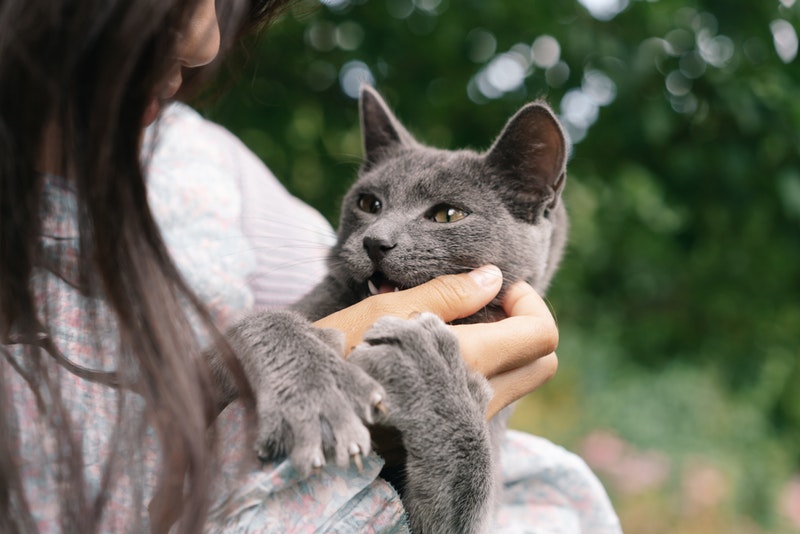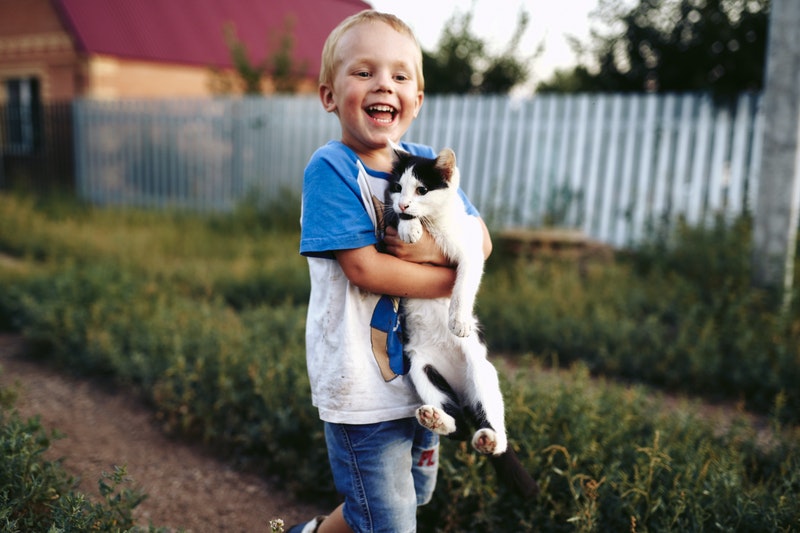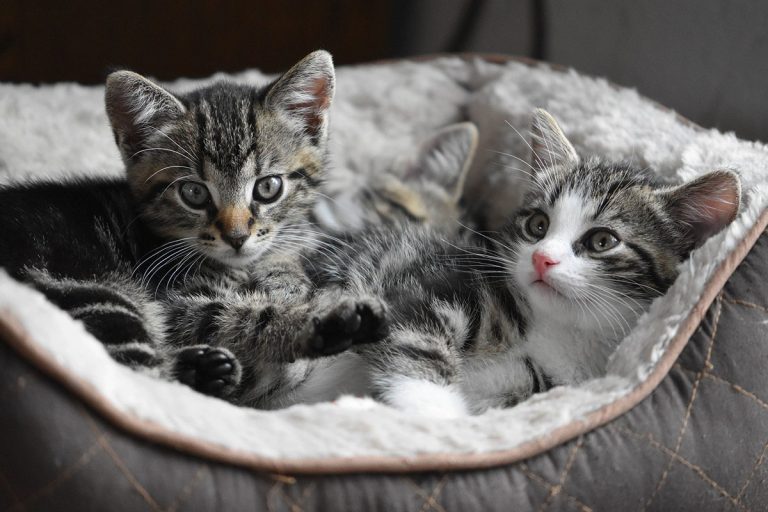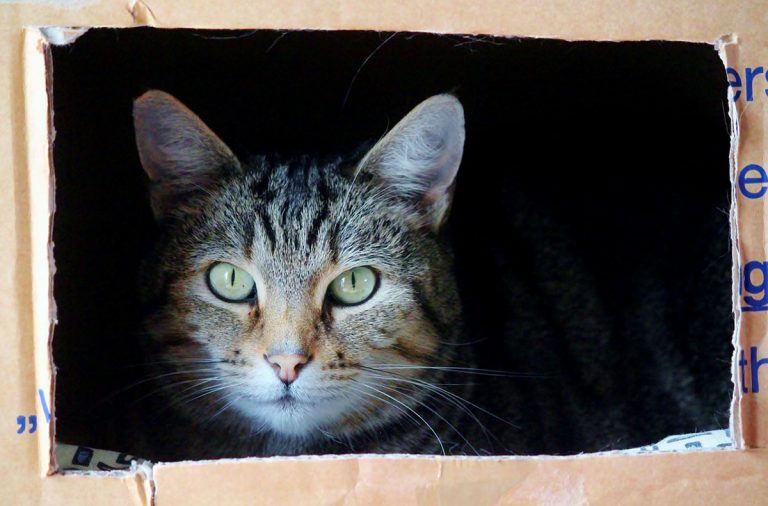Foster pet parents are an important part of the shelter system. New animals are always coming into already overcrowded shelters after being rescued or abandoned. They all need a place to stay and recuperate before they are ready to be adopted.
You can make a big difference to these animals by giving them a place in your home and dedicating some of your time to their care. In this guide we give you 10 reasons to become a foster cat parent that will convince you of both the necessity and the benefits of becoming a foster cat parent.
DISCLAIMER: This post may contain affiliate links. If you click one of these links and decide to make a purchase, we may receive a small commission. This comes at no extra cost to you and helps to keep the site alive and up to date. If you want more information, please review our Privacy Policy. Thank you for your support!
Top 10 Reasons To Become A Foster Cat Parent
1. You Will Save Lives
Animal shelters around the world are generally overflowing with cats, dogs and other animals waiting to be adopted into a loving home. The pandemic and the worldwide lockdowns that followed brought some relief, with more people finding the time and space in their lives for a pet. But this relief was only temporary and some of those people are actually returning their pets to the shelter as lockdowns are lifted.
It’s a very sad reality that shelters sometimes have to resort to euthanizing older and more difficult to adopt animals to make room for new and more hopeful rescues. You can make a real difference by becoming a foster cat parent and taking in one, or more, of those animals that would otherwise lose their lives.
2. More Animals Can Be Rescued
Even if the cat you decide to foster wasn’t scheduled to be put down, you will still be doing the shelter workers a great favor by taking another animal off of their hands. Taking care of animals takes time and energy. By stepping in as a foster, you allow the people at the animal shelter to save more animals than just your foster cat.
And seeing you make a difference in these cats’ lives might inspire others around you to do the same, allowing even more animals to be rescued.
3. Ailing Cats Need To Heal In Peace
Being in a shelter surrounded by other animals and people is very stressful for a cat. Especially if they aren’t feeling well to begin with. Cats have a strong tendency to hide when they are injured. Not being able to do so and constantly being surrounded by the smell of potential adversaries just adds to their trauma and will cause them to heal much slower. And that’s not even considering the long term effects it will have on their personality.
If you are able to give even one of these cats a quiet place to get better, why not do that? It will give them a better chance at being adopted into their forever home more quickly. Ultimately, that’s what will help both the animals and the animal shelters most.
4. Shelter Cats Deserve A Better Life
Some animals unfortunately remain at the shelter for a very long time. Older cats and cats with chronic illnesses or behavioral issues are less desirable as pets. As a result, they might stay at a shelter for months, years, if not the rest of their lives.
Shelter workers of course do the best they can to give all the animals they take care of the best life possible, but their time and resources are severely limited. You can give difficult to adopt cats a better quality of life while they wait to find their forever home by making space for them in yours. Who knows, you might even be able to help your cat sort out any behavioral problems and make them more adoptable.

5. Foster Cats Find The Best Forever Homes
A definite upside of fostering cats before placing them for adoption is the fact that you, their foster parent, can truly get to know them. By spending this time with them you can find out what their preferences are, and any quirks they might have. This will help you to find the best fit for them and the adopting family when you start looking for a forever home.
Because you really want it to be a forever home. All too often do shelter cats and dogs get adopted, only to be brought back a few days or weeks later. This puts an extra strain on the shelter system and on the animals that you can help relieve by becoming a foster cat parent.
6. Limited Financial Commitment
There are a lot of benefits to growing up with cats, and there is no reason you or your kids should have to miss out on this, even if you are on a tighter budget. The costs of fostering are generally covered by the shelter and its supporting foundation, or by the pet’s owner in case of a temporary foster care situation.
So even if you can’t afford to get a pet of your own, you can still become a foster cat parent and enjoy having cats in your life.

7. No Long Term Commitment
In most cases, foster cats don’t stay with their foster families for more than a few weeks to a few months. They take the time to recover from whatever it is that is ailing them, and then they go on their merry way. This means there is no long term commitment required on your end.
So, do you really want a pet, but are you not sure where you’ll be next year? Become a foster cat parent! Just make sure you don’t fall in love with your foster kitty and decide to adopt them yourself, though. This actually happens quite a lot and is affectionately known as a “foster fail” among the foster community.
8. You Can Help An Unlimited Amount Of Animals
The beauty of fostering cats being a short term commitment is that you can make a lot of those commitments in a row. After your foster cat is adopted, you can foster another cat. And then another, and another, and another… If you want to, of course.
The more cats you foster, the more you will learn about cats, their health and their behavior. And the more you know, the better foster you’ll be.
9. Cats Are Great Therapists
There are a lot of health benefits to living with and taking care of cats. For instance, it’s scientifically proven that petting a cat reduces your stress levels and lowers your blood pressure. This doesn’t only lower your risk of a stroke or heart attack, it also helps reduce anxiety and feelings of depression.
If you live alone or are going through a rough time, consider adding a cat companion to your life by becoming a foster cat parent. They will be there for you just as much as you are there for them.
10. Fostering Cats Is Very Rewarding
Fostering cats, and fostering animals in general, is one of the most rewarding things you can do. Just knowing that you are helping an otherwise helpless animal is fulfilling, to say the least.
On top of that, you get to watch them be cute and silly all day! And if you decide to foster kittens instead of adult cats, you get to see them grow up and develop their personalities.
Once they are adopted and off to their forever homes, you can pat yourself on the back for making a real difference in their lives. Oftentimes the families that adopt your cats will stay in touch, so you can still keep tabs on your babies from afar. Before you know it you will have cat friends all over the place.
How To Become A Foster Cat Parent
Hopefully you are convinced by now that becoming a foster cat parent is a great idea. But how do you go about doing this?
The first step to becoming a foster cat parent (or dog parent, rabbit parent, parakeet parent…) is to locate the animal shelters in your area. Go to their websites and look for any information they provide on their fostering needs. Most shelters will also list any requirements they have for fosters, if there are any.
Also be sure to check their adoption pages listing the animals in their care. Oftentimes you will be able to easily pick out the animals that have been at the shelter for a long time and would benefit most from being moved to a foster home.
The next step is to contact the shelter and let them know that you are interested in becoming a foster cat parent. Most shelters will be delighted to hear that, so you can expect a positive reaction. You will then need to fill out a formal application and give them some details about your home situation and your daily routine. But after that, you are on your way to fostering your first cat!






